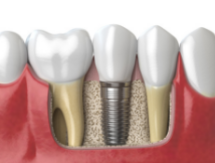If you’re thinking about getting dental implants in Melbourne, you’re likely to have a lot of questions regarding the operation and what it entails. Some of these questions, particularly for apprehensive individuals, may be preventing you from having a consultation. As a result, we’ve answered some of the most often asked questions.
What Is A Dental Implant?
A dental implant is similar to a new root for a missing tooth. It is a titanium screw that is placed into the jaw bone. An abutment and a crown are then placed on the implant to provide a new tooth that is permanent and looks just like a natural tooth.
How Long Do Implants Last?
When cared for properly, implants can last a lifetime. Proper oral hygiene and regular dental visits are essential to the success of your implant.
Do Dental Implants Hurt?
No. A local anesthetic will be given before the procedure so that you do not feel any pain. If you have anxiety or fear you should discuss sedation options with your dentist. The dental implants cost in Melbourne varies based on your choice of sedation.
What Are The Benefits Of Dental Implants?
Dental implants look and feel similar to real teeth as long as they remain osseointegrated. They can potentially last a lifetime and you can eat the foods you want without any fear of embarrassment. Success rates vary in studies but generally are around 90-95% in normal healthy patients. Smokers and other immune compromised situations reduce this success rate.
How Are Dental Implants Different Than Dentures?
Dentures are a removable set of teeth or partial set of teeth that need to be removed and cared for in a special manner. They can often feel bulky and are difficult to get used to. Dental implants are a permanent, non-removable replacement for missing teeth that can be cared for just like natural teeth.
Am I A Good Candidate For A Dental Implant?
For almost everyone the answer is yes. Implants are the closest thing to natural teeth and create excellent results. Some cases do require more foundational work (like bone grafting) to place the dental implant in an aesthetic and functional location. Also, there are some situations where implants may not be recommended. Some examples include, but are not limited to, extensive smoking history, uncontrolled diabetes, extensive bisphosphonate use, immune system deficiency, etc. A consultation will be performed to determine if an implant is ideal for you and you can know the dental implants Melbourne cost.
What Is The Aftercare For My New Dental Implants?
Implants need to be cared for in the same way as your natural teeth, with regular brushing and flossing (using implant-specific floss). Regular visits to your dentist and dental hygienist are also still important. Doing so will allow you to maintain your implant for a much longer period of time.




